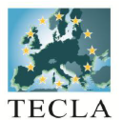"The next big evolution for the internet is cloud computing, where everyone from individuals to major corporations and governments move their data storage and processing into remote data centres.
Cloud computing is where IT infrastructures, platforms and software are provided centrally and distributed to end users over a network. Centralising data storage and processing offers economies of scale even the largest organisations cannot achieve by themselves. Cloud computing therefore represents considerable savings in IT budgets, and the end of headaches linked to older computing methods. Private sector businesses using cloud computing report 10-20% lower IT costs, while cloud computing can also help the public sector improve efficiencies and lower costs. Innovation would get a major boost, too, by offering research institutions much faster access to more data.
Unsurprisingly, therefore, cloud computing is developing rapidly, from individuals using the cloud to store personal data to major companies who have moved much of their IT services into it. Recent estimates are that these developments could double the EU cloud sector's current revenues to nearly €80 billion by 2020.
However, obstacles exist. The EU has therefore launched a three-pronged cloud computing strategy aiming to:
- cut through the jungle of different standards;
- identify safe and fair contract terms and conditions for consumers and small firms;
- establish a European Cloud Partnership, with the participation of public authorities and industry, to stimulate the take-up and effective use of cloud computing, particularly by Europe's public sector."
Source: https://ec.europa.eu/digital-agenda/en/about-cloud-computing















